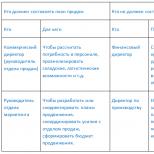Apartment insurance. rating of insurance companies. Where to insure an apartment
Every person dreams of their own home. When purchasing a cherished apartment, you first do repairs, furnish all rooms with furniture, add other items to create a comfortable life and rejoice at the fulfillment of your cherished desire. However, there are times when the joy of owning an apartment is overshadowed by unpleasant circumstances, such as fire, flooding, theft, wiring short circuit and other cases. Only then does a person begin to think about the need to insure an apartment. The rating of insurance companies (IC) and detailed information about their activities allow you to choose an insurer and protect yourself from possible financial losses in the event of an insured event.
Apartment as an object of insurance
According to the current legislation, an apartment means a separate room, which is located in a house with a large number of such rooms. An apartment, as a rule, consists of one or more living rooms and additional household units.
Apartment insurance implies the insurer's liability for damage to the interior decoration of the premises, all kinds of engineering equipment, as well as home property that belongs to the insured and is located inside the premises.

What properties are not covered by home insurance?
It should be remembered that not all premises and not all property are taken under the responsibility of insurance companies. The generally accepted exceptions are:
- apartments located in apartment buildings that are approved for demolition;
- premises, the state of which is recognized as emergency;
- apartments in houses located in officially declared extremely dangerous zones;
- apartments in those apartment buildings where the load-bearing walls, as well as the ceilings, are made of wood;
- precious metals, as well as products from them;
- antiques and unique historical items;
- cash and securities;
- items related to religious worship;
- art objects;
- products;
- natural fur products.
In addition, insurance companies can add their own exceptions to the rules to this generally accepted list. Therefore, before deciding where to insure an apartment, it is imperative to study in detail all the points of the insurance rules. Having decided on the insurer, you should pay close attention to the insured events for which the company takes responsibility.

Insurance risks
In the rules of the UK there is a list of events for which an apartment insurance contract is drawn up. The rating of insurance companies allows you to choose a company whose list is comprehensive. The specific name of the risk is important, because such nuances reduce the liability of the insurer as a result.
The main insurance risks, as a result of which the apartment and property of the insured may suffer, are:
- fire;
- explosion;
- water impact;
- illegal actions of third parties;
- natural disasters;
- collision with other objects.

Fire insurance
Apartment fire insurance implies the liability of the insurance company for losses as a result of accidental, spontaneous, uncontrolled fire impact on the territory of the apartment, household items, interior decoration elements. Some insurance companies divide such risk as fire in the approved insurance rules into two categories. If an accidental fire occurs and the property of the insured is damaged, the insurance indemnity is calculated according to the risk of fire. If the premises and property were damaged as a result of arson, then the insurers attribute the payment to the risk "Illegal actions of third parties" for apartment insurance. The rating of insurance companies, which is published on a quarterly basis, will allow the insured to choose a professional insurer and study options for insurance contracts.

Water exposure insurance
Another risk most often exposed to the property of policyholders is the uncontrolled impact of water due to a break in the water supply or sewer system, breakdown of household appliances that use water, even aquariums. Apartment flood insurance also covers damage to the insured object from steam or condensate, which could occur after a burst of heating pipes or damage to the hot water supply system. As a rule, the insurer will not be liable if the accident occurred as a result of a violation of the rules for installing engineering equipment or interference with their work. Having a living space on the top floor, you should definitely think about the need to insure the apartment. Ratings of insurance companies will allow you to get acquainted with the risks for which organizations are responsible. For some insurers, a roof leak is not an insured event. Therefore, when concluding an insurance contract, study the document in detail.

Denial of damages
Apartment insurance does not guarantee damage coverage to its owner in any case. There are generally accepted circumstances in which insurance compensation is not paid, such as war, intentional damage to property, acts of terrorism, radioactive exposure or explosions, civil strikes.
In addition, there are additional exceptions to the apartment insurance rules. The rating of insurance companies allows a potential policyholder to study in detail the reasons for refusal of payment in each of them. So, in some insurance representations, the insured is obliged to send requests to the relevant organizations within 24 hours from the day of the insured event in order to obtain documentary evidence of the event. In addition to this, the client of the insurance company must take all possible measures to save the property and reduce the amount of loss.
Other insurers require the policyholder to inform the insurance company of the risk that has occurred, without fail in writing. Until the damaged apartment and property is inspected by an insurance expert, the owner has no right to move or change anything on the spot.
Having decided to conclude an apartment insurance contract, be sure to familiarize yourself with the rating of insurance companies, the statistics of payments and the conditions of home insurance, so that in the future you do not waste your energy and energy on covering losses in the event of an insured event.





